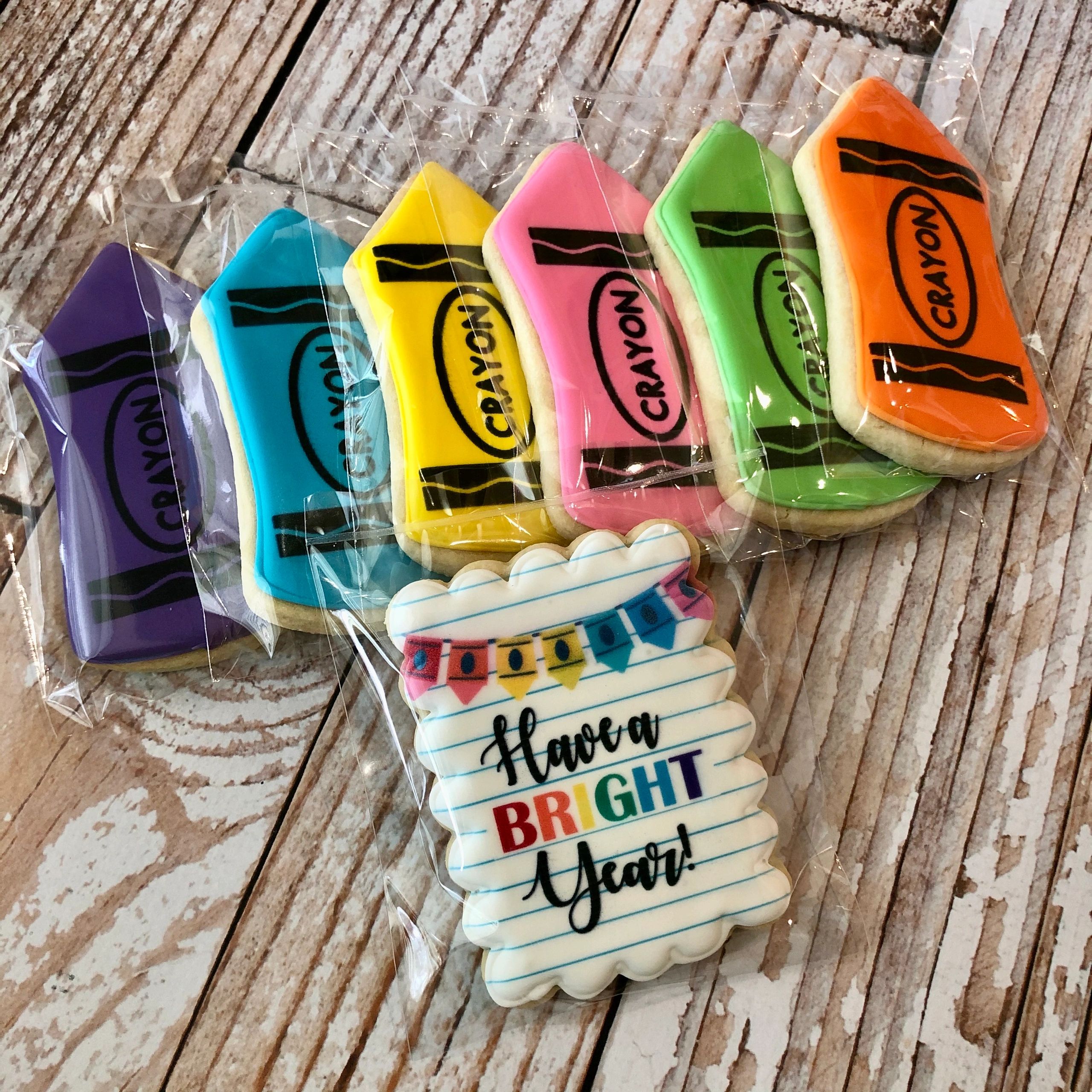Hey there, tech-savvy friend! Ever wondered what makes your online experience so personalized? The answer lies in custom cookies. Yep, those tiny bits of data that websites use to remember you. But hold up, there's more to them than just saving your preferences. In this guide, we'll dive deep into the world of custom cookies and uncover their secrets. So, buckle up and let's get started!
Custom cookies have become an essential part of the digital landscape. They help websites recognize you, store your preferences, and make your browsing experience smoother. But with great power comes great responsibility. Understanding how custom cookies work is crucial in today's privacy-focused world.
As we navigate through this article, we'll explore everything you need to know about custom cookies. From their benefits to potential drawbacks, we'll cover it all. So, whether you're a tech enthusiast or just someone curious about how the internet works, this guide has got you covered.
Read also:Unraveling The Truth Eddie Murphy Sick What You Need To Know
What Are Custom Cookies?
Custom cookies are like little digital sticky notes that websites use to remember you. They store information about your preferences, such as language settings, login details, and even shopping cart contents. Think of them as your personal assistant on the web, making sure everything runs smoothly for you.
These cookies are created when you visit a website and are stored on your device. They can be session cookies, which last only as long as your browsing session, or persistent cookies, which stick around for a specified period. Both types serve different purposes, but they all aim to enhance your online experience.
Types of Custom Cookies
Now, let's break down the different types of custom cookies you might encounter:
- Session Cookies: These are temporary and get deleted as soon as you close your browser. They're great for things like keeping track of items in your shopping cart.
- Persistent Cookies: These stick around for a while, allowing websites to remember you even after you've closed your browser. They're used for things like saving your login details.
- First-Party Cookies: Created by the website you're visiting, these cookies are generally considered safe and helpful.
- Third-Party Cookies: Created by advertisers or other parties, these cookies track your activity across multiple sites. They're often associated with targeted ads.
Why Are Custom Cookies Important?
Custom cookies play a vital role in shaping your online experience. They help websites provide personalized content, improve functionality, and even enhance security. Imagine visiting your favorite site and having to re-enter your preferences every single time. Sounds frustrating, right? That's where custom cookies come in, making your life a whole lot easier.
Moreover, custom cookies contribute to website performance. By storing certain information locally on your device, they reduce the load on servers, resulting in faster load times. This is especially important for sites with heavy traffic.
Benefits of Custom Cookies
Here are some key benefits of using custom cookies:
Read also:Understanding The Multifaceted Concept Of Sd Point A Comprehensive Guide
- Personalized content tailored to your preferences
- Improved website functionality and performance
- Enhanced security features, such as remembering login details
- Seamless shopping experiences with saved cart items
How Do Custom Cookies Work?
Now, let's get into the nitty-gritty of how custom cookies operate. When you visit a website, it sends a small piece of data to your browser in the form of a cookie. Your browser stores this data, and the next time you visit the site, it sends the cookie back to the website. This allows the site to recognize you and retrieve your saved preferences.
For example, if you set your preferred language on a site, a custom cookie will store this information. The next time you visit, the site will automatically display content in your chosen language, saving you the hassle of selecting it again.
Cookie Storage and Security
Storing custom cookies securely is crucial to protecting user data. Modern browsers employ various techniques to ensure cookies are safe from unauthorized access. They use encryption, secure protocols, and even cookie flags to control how cookies are handled.
However, it's important to note that cookies can still pose risks if not managed properly. That's why it's essential to keep your browser up to date and be cautious about which sites you allow to set cookies.
The Privacy Debate Around Custom Cookies
While custom cookies offer numerous benefits, they've also sparked a heated privacy debate. Critics argue that cookies, especially third-party ones, can invade user privacy by tracking their online activity. This has led to increased scrutiny and regulation, with laws like GDPR and CCPA being introduced to protect user data.
Many browsers have also taken steps to address privacy concerns. For instance, Safari and Firefox now block third-party cookies by default, while Chrome plans to phase them out entirely in the coming years. These changes reflect the growing importance of privacy in the digital age.
Managing Custom Cookies
Fortunately, you have control over how cookies are handled on your device. Most browsers allow you to manage cookie settings, giving you the power to accept, reject, or delete them as you see fit. Here's how you can manage cookies in popular browsers:
- Google Chrome: Go to Settings > Privacy and Security > Cookies and other site data.
- Mozilla Firefox: Navigate to Options > Privacy & Security > Cookies and Site Data.
- Apple Safari: Head to Preferences > Privacy > Manage Website Data.
Custom Cookies and Online Advertising
Custom cookies play a significant role in online advertising. They enable advertisers to track user behavior across multiple sites, creating detailed profiles that help them deliver targeted ads. While this can enhance the relevance of ads, it also raises privacy concerns.
As the advertising landscape evolves, many companies are exploring alternative solutions, such as contextual advertising, which doesn't rely on tracking individual users. This shift reflects the growing demand for more privacy-friendly ad solutions.
Tracking and Targeting with Custom Cookies
Here's how custom cookies are used in online advertising:
- Tracking user behavior across different websites
- Creating detailed user profiles based on browsing history
- Delivering personalized ads based on these profiles
It's worth noting that the effectiveness of cookie-based advertising is declining as more users adopt privacy measures. This has prompted advertisers to explore new strategies, such as leveraging first-party data and improving ad relevance without intrusive tracking.
Best Practices for Using Custom Cookies
If you're a website owner, implementing custom cookies responsibly is key to maintaining user trust. Here are some best practices to follow:
- Clearly disclose your cookie usage in your privacy policy
- Provide users with options to manage their cookie preferences
- Use secure protocols to protect cookie data
- Regularly audit your cookie usage to ensure compliance with regulations
By adopting these practices, you can ensure that your use of custom cookies aligns with user expectations and legal requirements.
Future Trends in Custom Cookies
The future of custom cookies is uncertain, with many changes on the horizon. As browsers continue to phase out third-party cookies, the advertising industry is exploring alternative solutions. Some of these include:
- First-party data collection
- Federated learning of cohorts (FLoC)
- Contextual advertising
These innovations aim to balance personalization with privacy, ensuring that users can enjoy a tailored online experience without compromising their data.
Adapting to the Cookieless Future
For businesses, adapting to a cookieless future requires rethinking strategies. This includes:
- Investing in first-party data collection
- Building direct relationships with customers
- Exploring new ad targeting techniques
By staying ahead of these trends, businesses can continue to deliver value to their customers in a privacy-conscious manner.
Conclusion
And there you have it, folks! Custom cookies are a powerful tool that enhances your online experience in countless ways. From personalizing content to improving website performance, they play a vital role in shaping the digital world. However, it's important to strike a balance between convenience and privacy.
So, what's next? Take a moment to review your browser's cookie settings and ensure they align with your preferences. And if you're a website owner, consider implementing best practices to responsibly use custom cookies. Together, we can create a safer and more personalized online environment.
Before you go, drop a comment below and let us know your thoughts on custom cookies. Are you a fan or do you prefer a cookieless experience? Also, don't forget to share this article with your friends and check out our other tech guides for more insights!
Table of Contents


